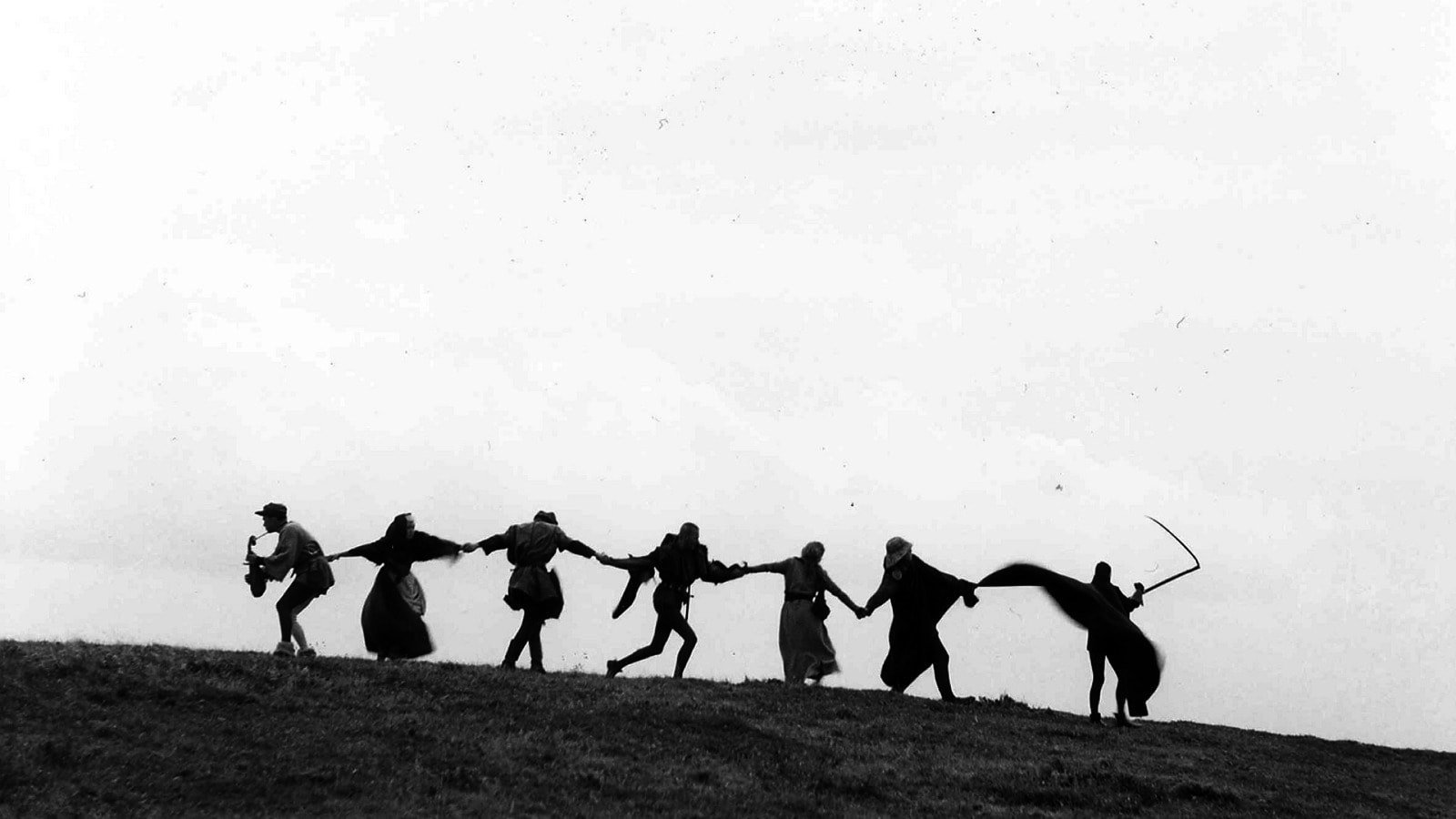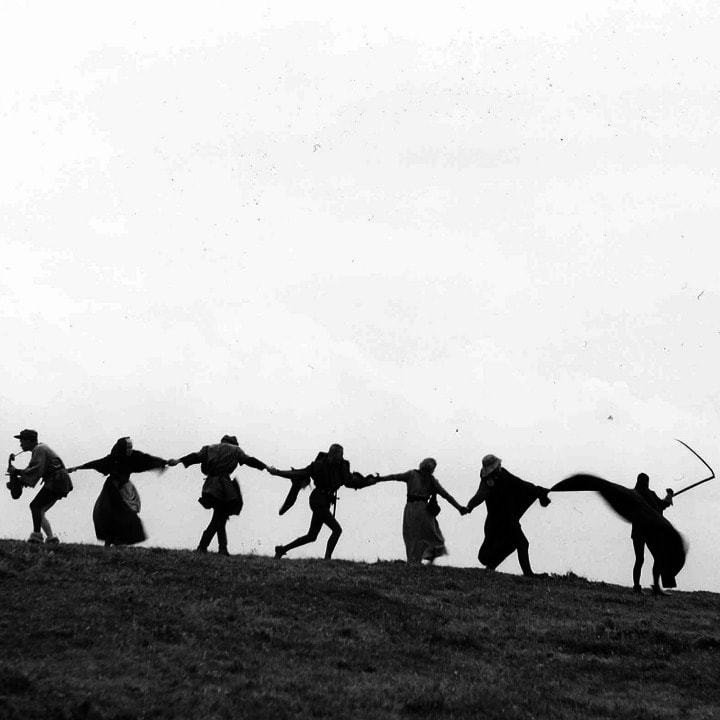Ingmar Bergman’s restored masterpiece is a medieval parable about the search for God and the meaning of life.
In medieval Sweden on the eve of a monstrous plague, the knight Antonius is heading home after a ten-year crusade, tormented by questions of God and ethical values, life and its limits. Looking for answers, he meets Death, who has come after him. Antonius invites Death to play a chess match, putting his own life on the line. Using the game as a reprieve, he moves toward home, encountering flagellants, a happy couple of nomadic performers with a son, and a girl accused of having ties with the devil.
The Seventh Seal is a medieval fresco about human suffering and the inevitability of the end. Woven from religious symbols and quotes (the title of the film references the Revelation of St. John the Apostle, regarded as the beginning of the Apocalypse), it offers a variety of views on faith, with relations with the Almighty ranging from piety shrouded in horror to an open, pure search for God and doubt in his presence.
Based on Bergman’s play Wood Painting, written for his work with students at the Malmö Theater School, it reflects his personal theological quest and memories of childhood and his father, who was a pastor. At the same time, The Seventh Seal is almost a road movie about a knight and his squire, an adventure about a man's competition with death that is full of comical and musical scenes from everyday life. The film’s expressive and ascetic language and its minimalist theatrical aesthetic have forever entered the history of cinema, while the image of Death created by Bergman has become canonical.
The film will be screened in Swedish and Latin with Russian subtitles.
The Seventh Seal
Dir. Ingmar Bergman
Sweden, 1957. 96 min. 16+

